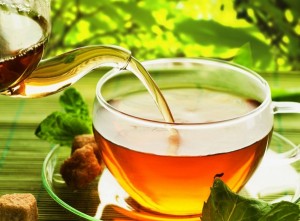By Derek Noland
Guest Writer for Wake Up World
In recent months, a controversial report has been released indicating that Celestial Seasonings teas may contain dangerously high levels of pesticides. In the initial report, 10 out of the 11 Celestial Seasonings teas that were tested were found to have pesticide levels exceeding the federal limits of the United States. Celestial Seasonings, which operates as a subdivision of Hain Celestial, is among the largest distributors of specialty teas in North America.
The Report’s Findings
An independent analytic testing company, Eurofins, conducted the tests on a variety of Celestial Seasonings teas. With their finding that 91 percent of the teas tested had unsafe levels of pesticides, the test results fiercely clashed with the marketing image put forth by Celestial Seasonings.
[pro_ad_display_adzone id=”110028″]
The official website of the tea company refers to the “high quality, safety, and taste” of their teas, and states that Celestial Seasonings follows regulations set by the FDA and EPA. The website goes on to state that, “Our testing methodology covers three times the recommended agricultural residues tested in the USP standard.”
Clearly the results of the Eurofins test do not mesh with the expressed practices of Celestial Seasonings.
The 10 Celestial Seasonings teas that were tested by Eurofins and found to have unsafe pesticide levels were:
- Antioxidant Max Blackberry Pomegranate
- Antioxidant Max Blood Orange
- Antioxidant Max Dragon Fruit
- Authentic Green Tea
- English Breakfast Black K-Cup
- Green Tea Honey Lemon Ginger
- Green Tea Peach Blossom
- Green Tea Raspberry Gardens
- Sleepytime Herb Teas
- Sleepytime Kids Goodnight Grape
Of the 11 teas that were tested, only Rooibos Safari Spice was found not to contain an unacceptable level of pesticides.
Controversy Surrounds the Report
While at face value the report is compelling and alarming, Hain Celestial has contradicted the findings and raised legitimate questions about the neutrality of the research company. Hain Celestial’s reason for criticizing the research stems from the fact that the Eurofins tests were conducted as part of a larger reported by Glaucus Research, which is an investment company that would financially benefit from a depreciation in Hain Celestial’s stock market value.
However Glaucus Research defended the findings, stating that they were not involved in the testing, and that Eurofins conducted the test independently. Furthermore, Hain Celestial has defended the quality of their products, stating that their teas maintain a high standard of quality and safety.
The Bottom Line
As these conflicting reports leave room for questioning and interpretation, the responsibility to use caution and judgment ultimately lies within ourselves as consumers. It is true that we are still limited in our ability to know exactly what makes up the contents of our food and drink products, but at the same time we live in a world of ever-increasing transparency. With access to more information than ever before, we owe it to ourselves to make informed decisions about the products we choose to ingest. When selecting food and drink products, be sure to consider their sources, and the potential ramifications of your choices.
Previous article by Derek Noland:
About the author:
Derek is a technical writer and editor with 10 years of experience in the health care field, having first earned a Bachelor of Arts in English from the University of Delaware. He is a contributing author on a number of textbooks in the medical field, ran a nuclear cardiology licensing course, and has written a variety of other pieces from online training courses to medical software manuals.
Derek pursues his personal interest in health and wellness by playing multiple sports and running marathons. An insatiable traveler, he spent 16 months working and living abroad while traveling through South America, Europe, and Southeast Asia.
This article was republished with permission from Live in the Now, one of the fastest growing natural health newsletters. Visit LiveInTheNow.com to browse their complete library of articles, or join the nearly 60,000 readers subscribed to their Newsletter.
[pro_ad_display_adzone id=”110027″]







